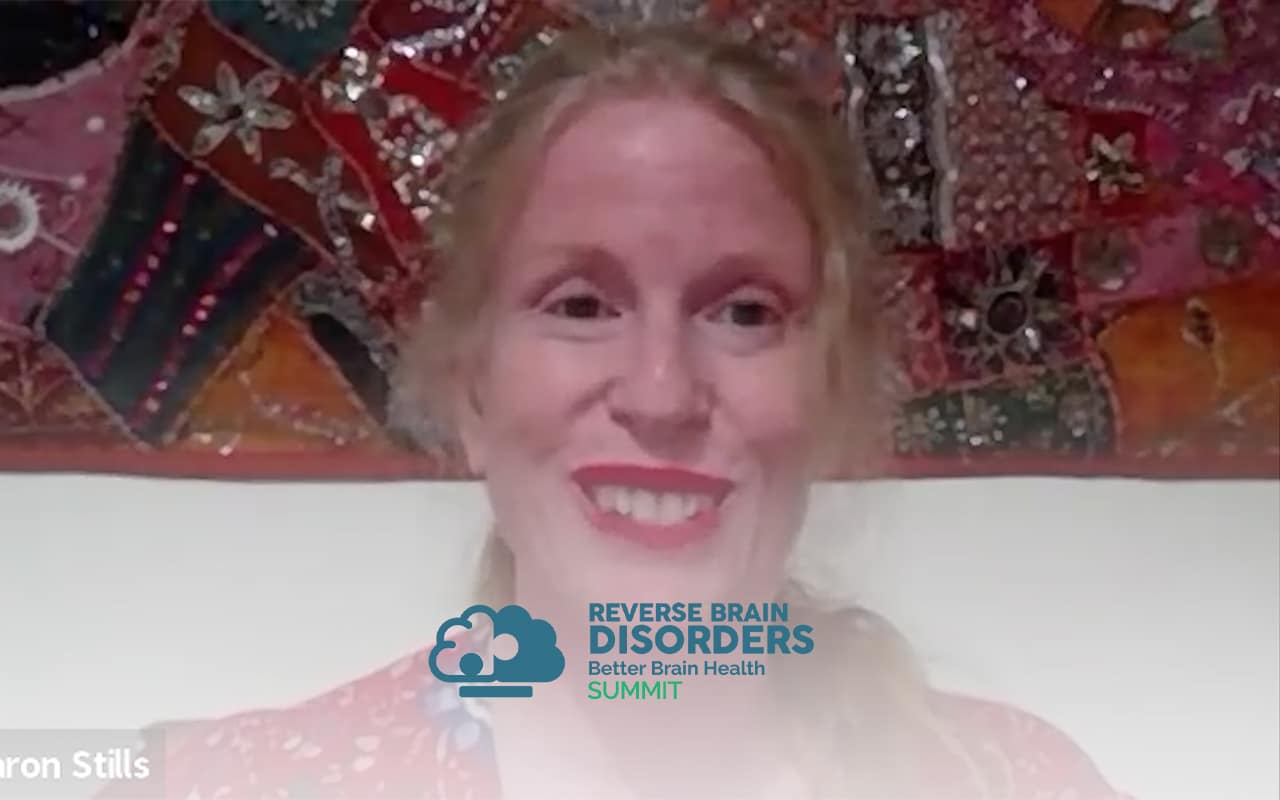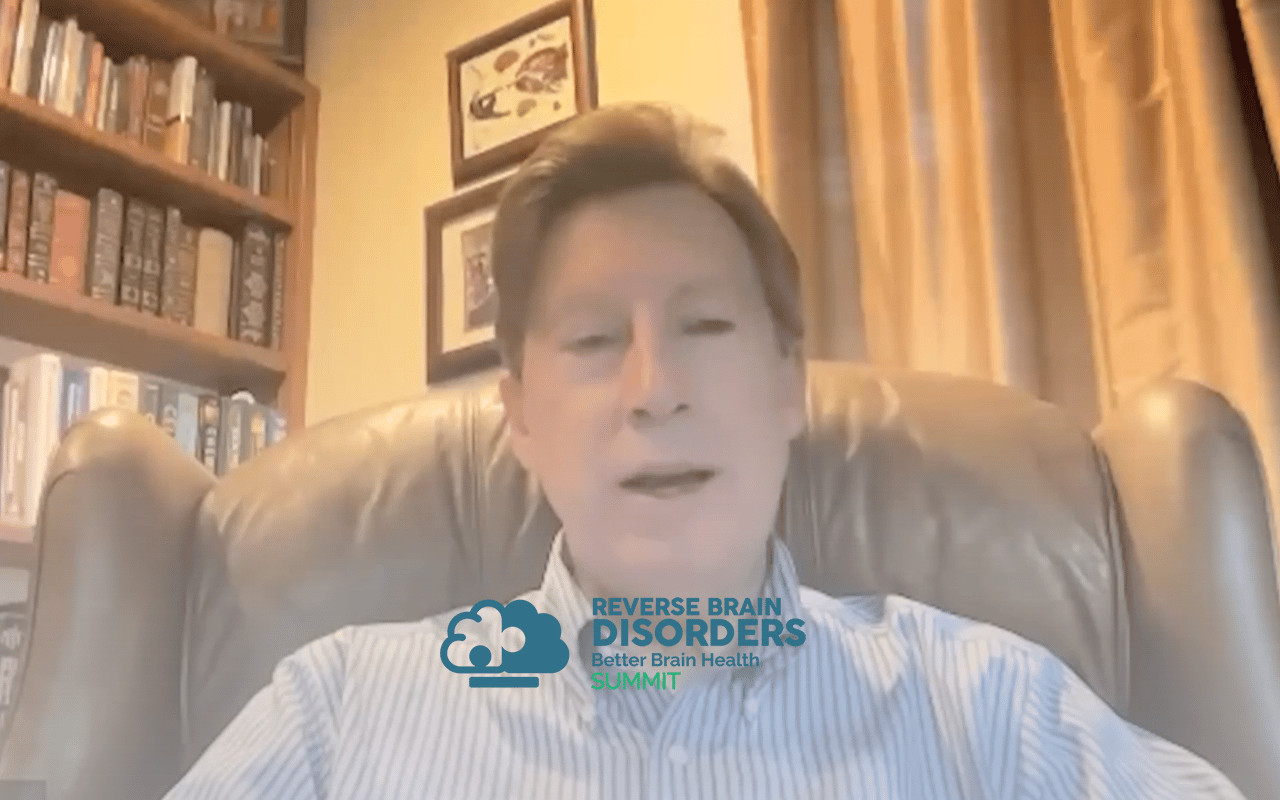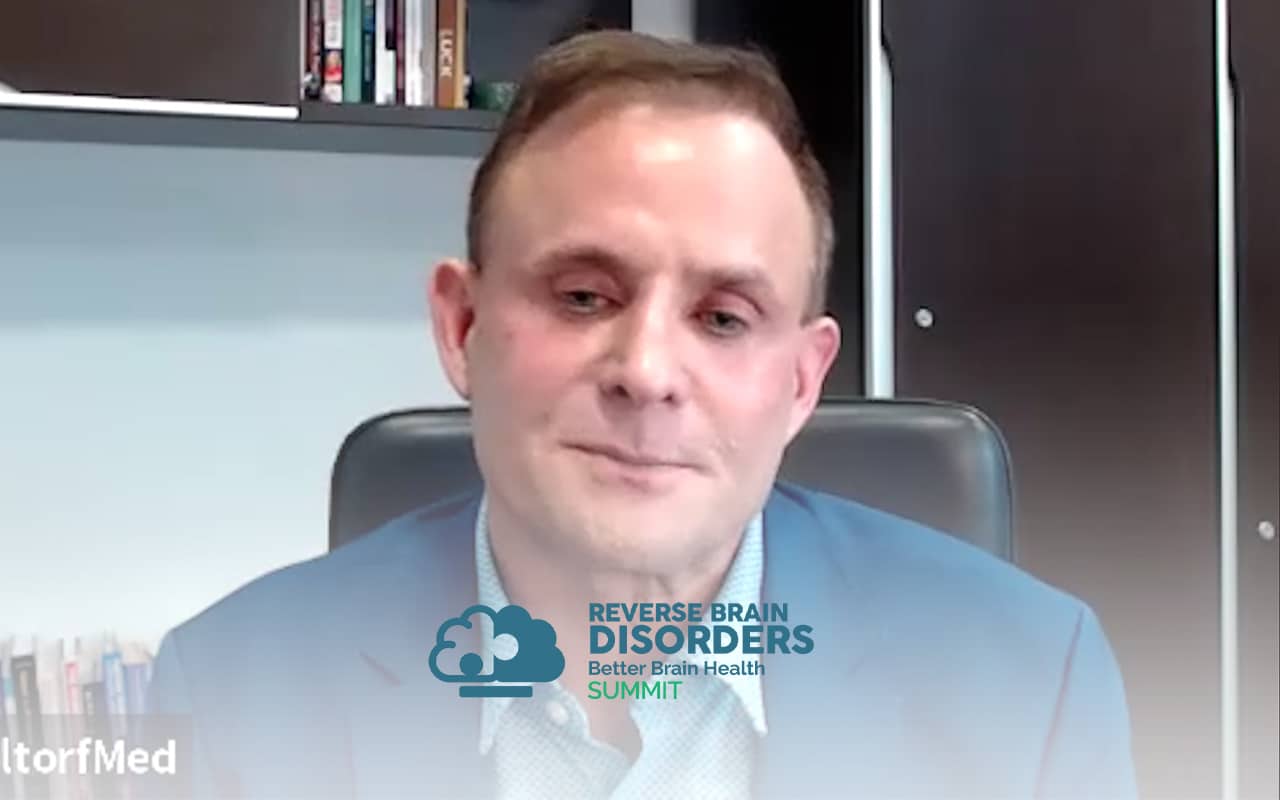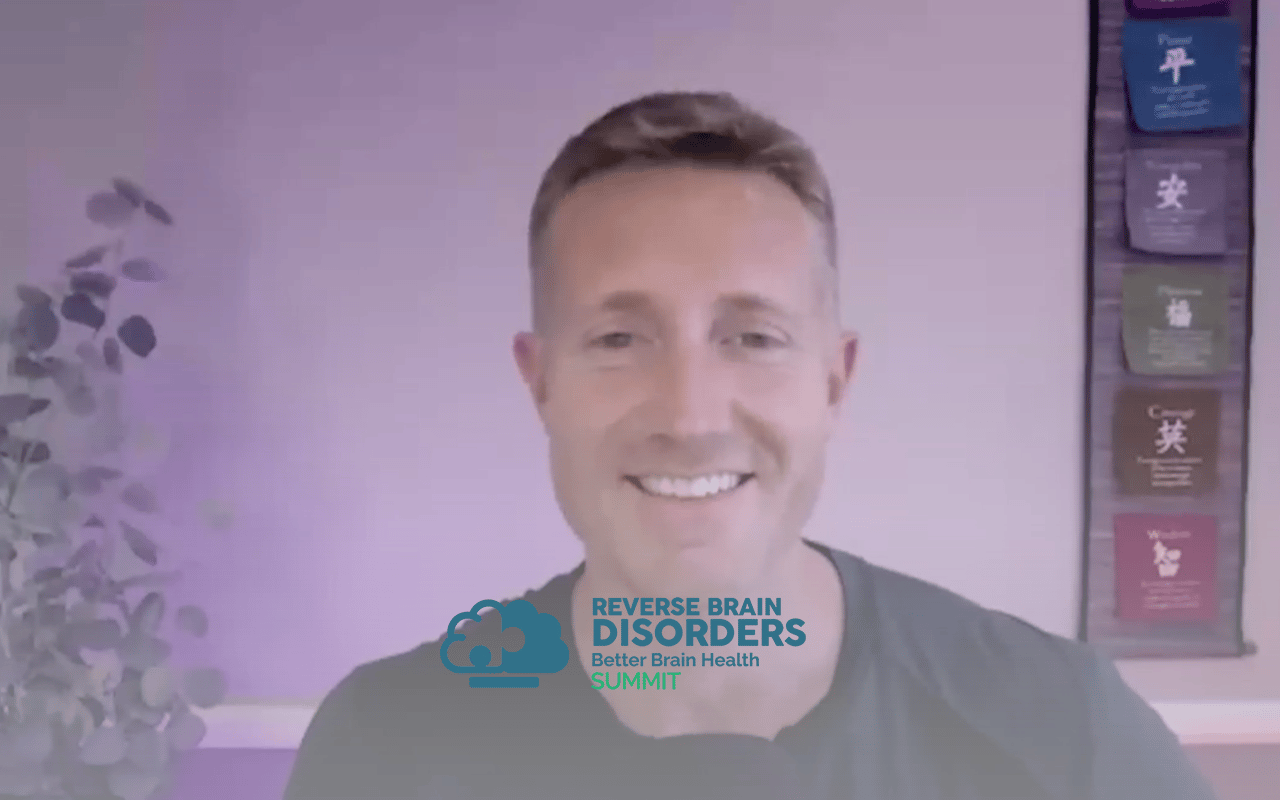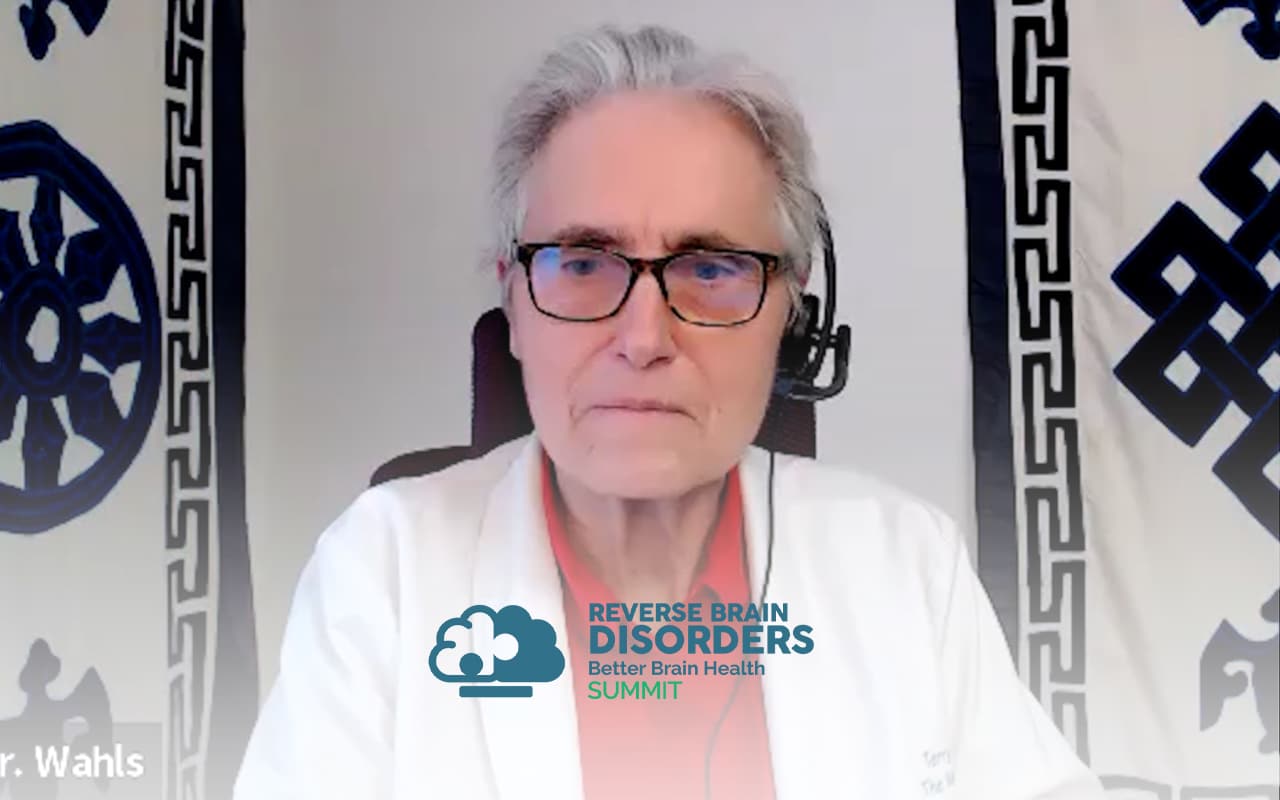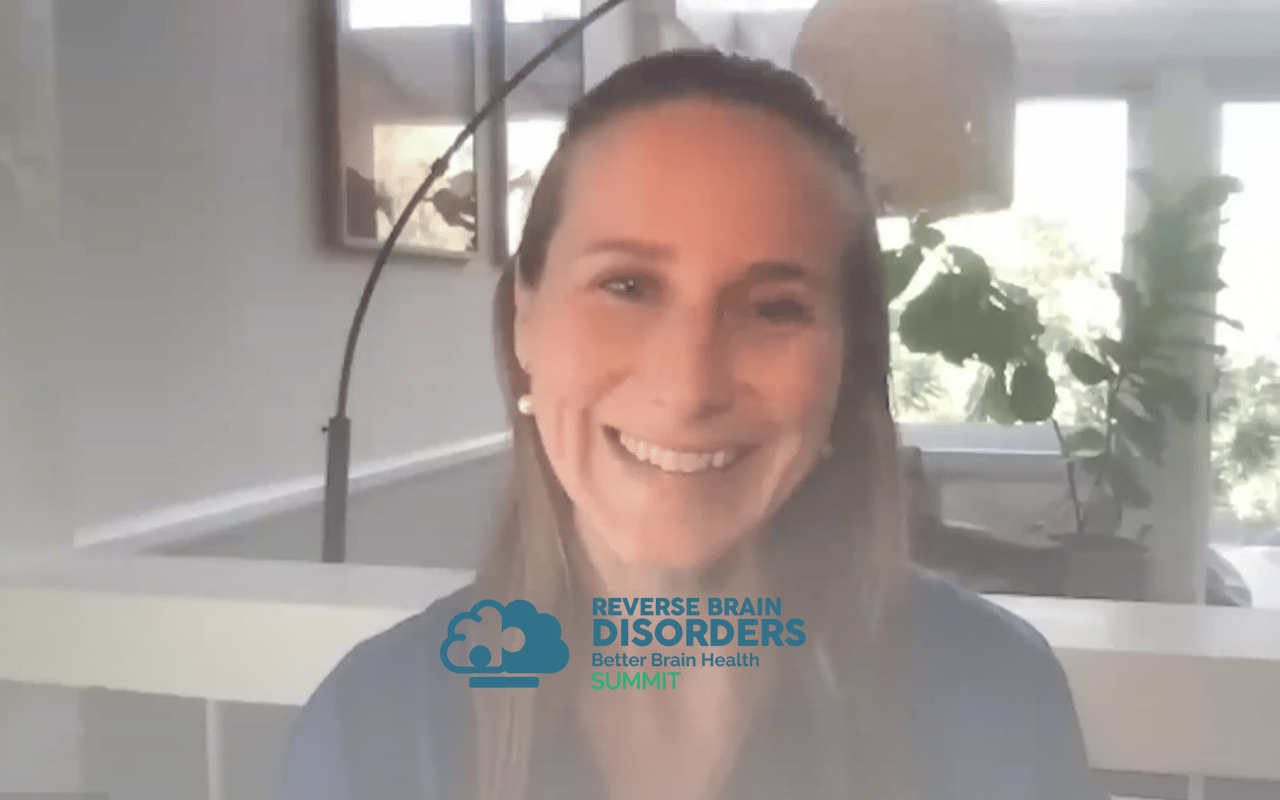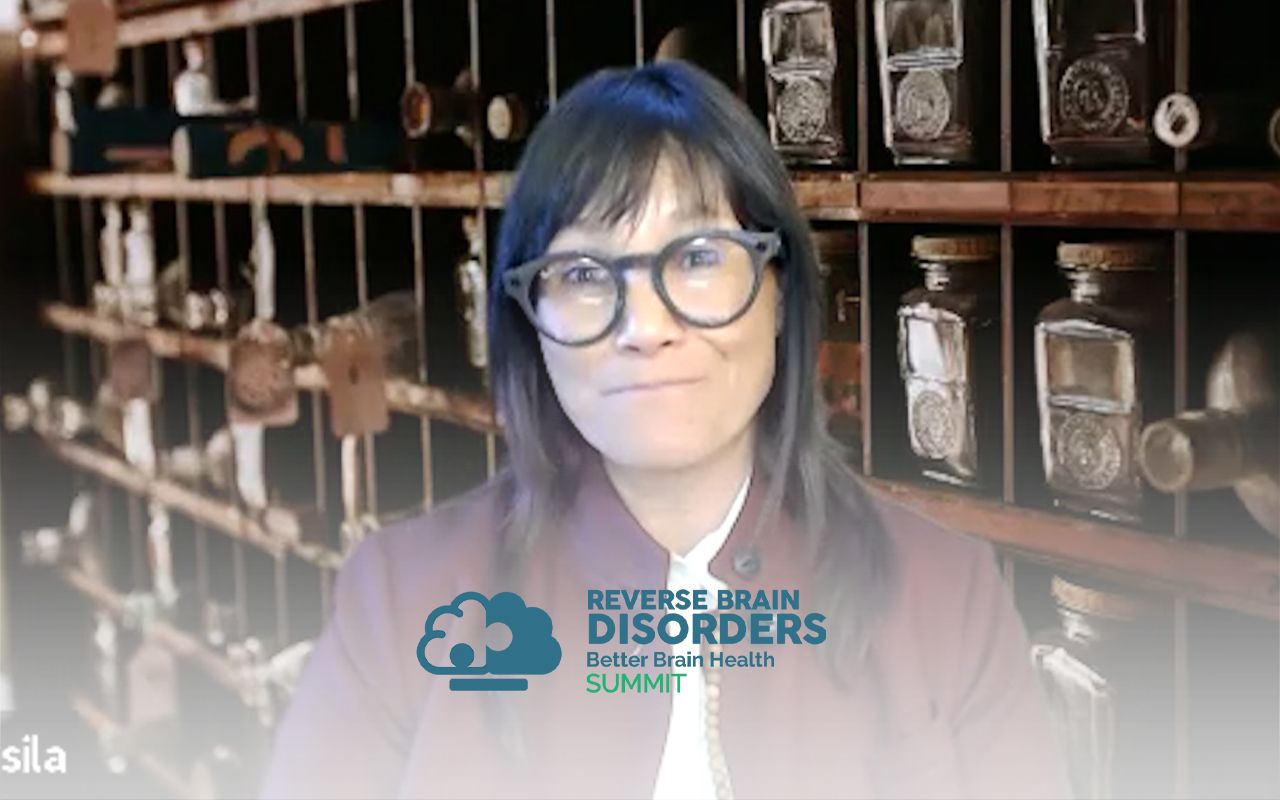Join the discussion below

Dr. Ruan is the Founder and CEO of Texas Center for Lifestyle Medicine. He devotes his career in practicing and building systems that allow for efficient delivery of healthcare. He is a board certified internal medicine physician but also have advised with companies to improve their workflow, company culture, marketing,... Read More
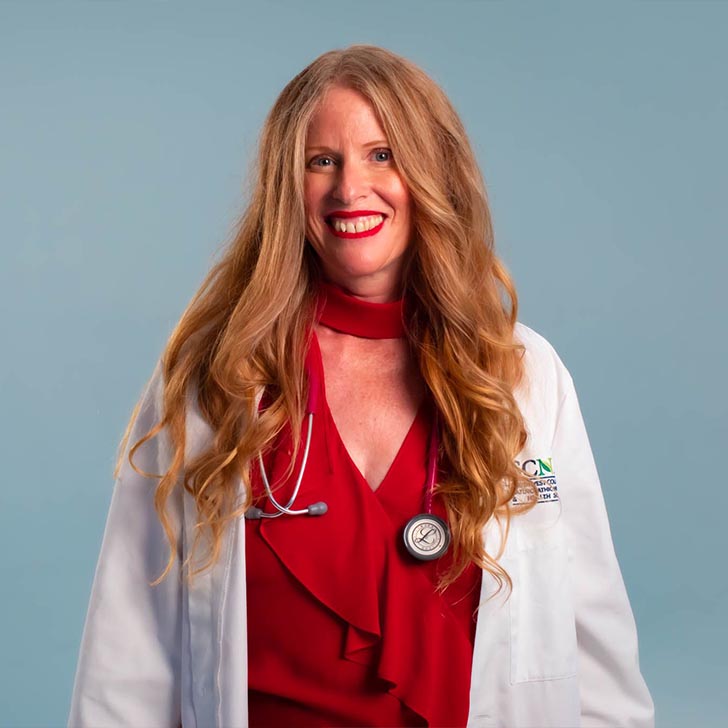
Dr. Sharon Stills, a licensed Naturopathic Medical Doctor with over two decades of dedicated service in transforming women’s health has been a guiding light for perimenopausal and menopausal women, empowering them to reinvent, explore, and rediscover their vitality and zest for life. Her pioneering RED Hot Sexy Meno(pause) Program encapsulates... Read More
- Why hormones get a bad reputation
- How can hormones improve brain health
- Why hormone optimization starts with stress and sleep improvements
Cheng Ruan, MD
One of the greatest mysteries about hormonal health really surrounds women’s health and menopause. So for some reason during menopause, the brain actually goes through a very massive change. So we know there’s hormonal components to it, but there’s a lot more to it than that. I want to talk with Dr. Sharon Stills and she has been featured in multiple magazines and digital media and entrepreneur journals, Women’s Health network, even men’s fitness journals, and men’s journalism, Women’s Fitness and yahoo life. She is a naturopathic doctor, an author and an inspirational speaker and a woman’s health expert and there’s no one to talk about women’s health. Then Dr. Stills, What we’re gonna uncover today are some concepts behind the biggest challenges in medicine when it comes to women’s health and brain health. So I can’t wait to introduce you to Dr. Stills. I’m so happy that you’re on. Super excited to talk about the topic that few people really want to touch to be honest with you when it comes to brain health. So thanks for coming on.
Dr. Sharon Stills
I’m happy to be here always excited to share the news about women’s health and hormones and just help educate.
Cheng Ruan, MD
Yeah, absolutely. So I live with a lot of women. So I have three daughters. I got my wife, my mother, my mother in law, all under one household and so I experience all ranges when it comes to gender as well as other issues as well and my wife’s an O. B. G. Y. N. So we talked about hormones actually quite a bit around the household and so but let’s focus the talk about hormones in general and then we’re gonna die a little deeper into the brain health of women and how hormones are really impacted me. And so let’s have you start like what are the biggest misconceptions about like hormones in general from a woman’s health.
Dr. Sharon Stills
So many misconceptions, you know, us women get the short end of the stick a lot in research and in the doctor’s office. And so I think that one of the biggest misconceptions women are told is it’s not your hormones, it’s in your head, it’s just you’re getting older, this is just natural, your supposed to suffer. You’re supposed to have brain fog, you’re supposed to not be sleeping, you know, this is just part of life, this is stress, suck it up buttercup, you gotta deal with it. So I think, you know right off the start, I just like to say to the listeners that if you are struggling and I know we’re specifically talking about brain health here. But if you are struggling with memory or brain fog or you feel like early onset dementia or just not feeling right in the brain, then you definitely want to, you know, there can be multiple reasons for why that’s happening. Typically health is always multifactor tutorial as is disease processes.
But you want to really think about your hormones and the impact from your adrenal gland hormones such as cortisol which is our stress hormone and our brain is filled with glucocorticoids, steroid receptors. So if your secreting a lot of cortisol you can have a decrease in your brain weight, you’re going to have a decrease in resilience and how you respond to stress can have a decrease in cognition and memory loss. You can have brain atrophy. So just starting there with stress is a huge piece of the puzzle. And so there’s big misconceptions about how you find out about these things and how you actually get them tested. And so for instance with cortisol a lot of times you get a morning cortisol in the blood but that doesn’t really tell the whole story. So I like to do saliva cyclical testing. So you can actually see your diurnal rhythm of your cortisol production because it’s not just about how much or how little cortisol you’re producing but it’s about are you producing it at the right time? Are you producing more in the morning when you should be and less at night when it’s time to go to sleep.
Cheng Ruan, MD
Right. Right. So let’s talk about that as either a conception, enormous conception. So basically what that means is that working first is it the stress, the external and internal stress that really started this cascade of hormone imbalance or does something create the whole imbalance that created the stress like how does how does that bi directional energies work?
Dr. Sharon Stills
I mean I think you know it’s totally chicken or egg kind of thing. But I do think the stress, you know I feel like it’s the stress that sets or off the imbalance and we have to think about it stress. Like when we think about stress we think of ah you know I’m late or but stress comes in so many different flavors and styles. So it can be physical stress. You can have us a vertebrae out causing neurological problem. You can have invisible stress from E. M. F. S. And dirty electricity. You can have stress from internal metabolism type of stress. Computer, you can have stress from you know you’re producing too many free radicals. You’re not breaking down metabolic byproducts in your body. You can have stress from the future. You can have stress from the relationships you’re in. I mean there’s so it’s like if you’re alive you’re gonna have to deal with stress otherwise you’re probably just in a hole somewhere you’re not really living or interacting. And so it’s really about how do you dance with stress? What is your relationship with stress? How do you respond rather than knee jerk react to stress?
Cheng Ruan, MD
Right. Absolutely. I 100% agree with you there because you know with physical emotional spiritual stress, they all you know hormones are sort of like the innocent bystanders sometimes where they’re responding to your stress and some and they’re responding appropriately to the stress right? And so we can’t and we can’t just say, hey take some supplements and being a good diet and that’s it with the stress. Such an important component to hormonal balance.
Dr. Sharon Stills
Exactly like your body if you’re stressed and your body is putting out too much cortisol like you can’t blame your body for that, that’s your body doing what it’s supposed to do, protect you trying to respond. You know, your body doesn’t know, I always say like it’s like your body doesn’t know if you have 75 unanswered text messages or you’re being chased by a saber toothed tiger and you’re fighting for your life and so you can’t fault your body and and there’s a lot of misconceptions about cortisol and cortisol being too high and my experience is that a lot of patients already through that stage and now their cortisol has crashed. And so it’s really important to take a look and see what your levels are doing and absolutely, it’s not just about, oh you have stress levels. So here take some ash Uganda, you know take a nice adapted and like that would be really awesome if that’s all it took to balance out your stress levels but when you are out of sync yes supplements and the right diet are important but you’ve really got to start looking at your lifestyle and and we know that lack of sleep and lack of connection with nature and lack of breathing and all these things are gonna impact your brain health.
Cheng Ruan, MD
Oh yeah, absolutely, you know, in the major medical institutions, the way that these are taught is pathologic or is it normal stress? Right, so pathologic stress, as is there’s some major, like genetic disorder, you know, with like, adrenal failure, Addison’s disease, or some Children can be born with tumors in the adrenal glands. And between this and this is the absolute, like pathogenic stress hormones. And we’re not talking about that, We’re talking about things that can be everyday situations of our body actually responding to distress. So, in conventional medicine, you know what we were taught is that it’s not truly a pathology leave alone. But interesting enough now, most people want to understand their body, and just because we do testing doesn’t mean that there’s a pill for it, but that doesn’t mean there’s like a pill for it, but really answers the bigger question. So someone does have hormonal imbalance. Then we asked the question like, what’s your life, like, and do you have any stressors and traumas any are you on screen time, like 18 hours a day? Like gamers, a lot of gamers do that, right, which creates this huge hormonal balance on the m s at their face and stuff like that, right?
So there’s a lot of things that are really going on. So I think we’re, you know, conventional Madison takes it is a lot of people ask their doctors, they you know what’s my hormone balance. But there’s no conventional testing that specifically test for a hormone balance is far more broad than that. So this is where functional tests like celebrated hormones, hormones and stuff like that. Could be useful in answering the question. Not what medicine do you need, but what physiologic state are you in right now? And what can propel you into the future? Which is sort of the basis of hormone balance. Now having said all that, right? Now hormones look differently. Woman before during and after menopause, right? And also before during and after puberty. Right? And so what are the changes that women go through throughout life in terms of hormones? And how does that relate to? Like brain health?
Dr. Sharon Stills
Well, so I mean when we’re going through puberty, that’s when we’re having our surges of estrogen and we’re starting to menstruate. And I mean women have testosterone too. You know, we all like men have estrogen and progesterone. So it’s just we have them in different ratios. And so women are I mean men go through andropause but we don’t really talk a lot about that. It’s like men’s testosterone goes down as women are going through menopause. But it’s not as extreme as women who are such cyclical creatures. I mean we are once we go through puberty and we’re having a cycle we’re cycling every 28-30 days. You know approximately 28 days we say. Then women are the ones who can get pregnant and carry a baby to term.
And so we’re having surging hormone levels there. And so I always talk about because such a misconception is estrogen and so many people think estrogen causes cancer. And I always just remind women and men that if estrogen really caused cancer when we went through puberty and when we were pregnant when our levels are skyrocketing we’d see a real high predominance of breast cancer. And we don’t we see it postmenopausal when the levels are dropping. And so it’s this big misconception about estrogen because there are different kinds of estrogens and some are really breast cancer protective for and some are definitely brain protective. And so we we have to just think about women are going you know we’re like rollercoasters are kind of ebbing and flowing throughout our lives if we’re breastfeeding if we’re pregnant when we’re cycling and menopause and all of these things are not really diseases. It drives me crazy. Like there’s an I. C. D. 10 code for menopause. And I’m like this, these are just natural transitions. Having a cycle finishing your menstrual cycle getting pregnant not getting pregnant and when there are imbalances when you are suffering that means that there are imbalances in your in your life in your systems in your hormones and that’s your body’s way of saying, hey, I need some help here, but being a woman and having hormones that cycle and do different things at different times doesn’t mean there’s something pathologically wrong with you. And we think about brain because I’m trying to focus on the brain since we’re talking about the brain here, estradiol, which is E two is really, really indicated in brain health.
And we see that we see when women go through menopause and they lose their estrogen, That there’s all of a sudden this explosion of Alzheimer’s. And if you can replace that estrogen, then you know, the Hippocampus where you learn and you remember there’s a ton of estrogen receptors there and so you’re not gonna see that. I mean, I see that I’ve been practicing over 20 years and I see it all the time. The patients, you know, I have patients that I’ve been working with 20 years and the ones who are on proper bioidentical hormone replacement as they’re aging. They are not losing their memory, they are not having a hard time retaining, They’re not showing signs of early dementia as a matter of fact, they’re, they’re doing phenomenal things in the world and and they’re just really aging backwards in front of my eyes.
And so we have to be thinking, you know, I think a lot of times we think about estrogen and hormone replacement for hot flashes and I have so many women who say, well I don’t have hot flashes. So I don’t need estrogen. And I’m like, well you have a brain, right? And you want to keep it functioning right? And you don’t want to be at risk for Alzheimer’s, right? So you do need bioidentical hormone replacement. You just need you, you need it properly and you need it. You know, you don’t want the synthetics, you want bio identical. And we use a lot of est real in bioidentical hormone replacement, but it’s coupled with estradiol. And so there’s benefits from each and it’s the art of knowing what percentage which person needs to give them the support they need and also give them the protection.
Cheng Ruan, MD
Yeah. So for people who are listening to this, please work with a provider on this. This is not something there’s no guesswork that’s done for this because it’s very delicate balance. And you got to work with people who are balanced as well. And not only that, the route of estrogen intake also determines where the estrogen does to the body, right. There’s oral estrogen which is very different than topical or trans vaginal estrogen, you know, And we’ve seen a lot of studies that’s really focused on the differences between them, especially most recently as well. And now we’re seeing clinical trials of adding estriol topical estriol and some trans vaginal as part of cancer In the largest cancer institutions that you can think of as part of the conventional Phase one clinical trial. So really exciting stuff when it comes to hormones. I think the way that we’re thinking about hormone and hormone replacement therapy is shifting a lot and it will continue to shift a lot in the next few years because now there’s pharmaceutically available biochemicals that just hit the market with the largest pharma companies and stuff like that. So there’s a lot more dedication to this topic as well. I don’t know, that’s gonna be a good or bad thing. So we’ll see what is in the future, right?
Dr. Sharon Stills
Yeah. I think I do think though it’s important that like this is not DIY you have to work with a doctor and I think it’s important to work with a doctor who’s open minded and keeping up. It’s very archaic. Like I still have patients who come into me and they’re like, oh my O B G Y N, or my primary said I didn’t need any progesterone because I don’t have a uterus anymore. And that kind of thinking is so archaic. I call it sloppy medicine and I don’t mean to be disrespectful, but I mean I took an oath and a commitment and I am constantly learning and going to conferences and reading and keeping up and watching summits and doing all these things to, you know, you can’t be lazy and be a doctor, You have to be constantly growing and keeping up with the science and so you want to look for someone who is keeping up with things and doesn’t tell you that you know estrogen is dangerous or hormones are dangerous or you only need them for you know a little time to stop your hot flashes.
I mean for example like progesterone, you know it’s neuro protective, it increases healthy blood flow to the brain. I mean there’s research and data showing it’s really helpful and prevention from strokes and traumatic brain injuries and it’s regenerating your brain cells in your nervous system and its anti-inflammatory and it so for its mitochondrial function in your brain cells I mean it does so much good for your brain. So when a doctor says well you don’t need progesterone because you don’t have a uterus like but you have a brain so they’re not thinking it through their thinking very you know like course with blinders on and then I mean progesterone especially and again when I’m talking I’m always talk talking about bioidentical and progesterone. Talking about cream but also oral progesterone because the way it crosses the blood brain barrier it has a metabolite that is a lot pregnant alone which hits the gaba receptors and Gabbas your major neuro inhibitory transmitter so it’s going to calm you down and help you. I mean I don’t know, I’ve gotten like flowers from lots of patients, husbands because I’ve given progesterone and they’re like, oh my God, thank you, she’s not, you know, anxious and crazy and screaming at me anymore. Like she just like, I call it natural as Xanax, you know, it just really mellows you out and mellows your brain out and you need to sleep if you’re not sleeping, you don’t have healthy brain function and often you’re not sleeping because you don’t have enough progesterone. And so, you know, it all just kind of ties in with each other. It all ends up, you know, falling back on the same principles and the same things, but hormones are, you know, they’re not, they’re not everything, but they’re an important piece of the puzzle that needs to be paid attention to.
Cheng Ruan, MD
Absolutely. And I want to go back to sort of this concept of you know, you don’t need projection, you don’t have a uterus, because I think that when in the general medical societies, the word need is used very differently than like functional medicine or wellness doctors, right? Because if someone is a gynecologist, then they’re going to be focusing on the vagina, they’re gonna be focusing if there are no b then they’re going to focus on birth, right? And so I think the term need meaning that deep, like without it, are you gonna be pathological? And that’s the term need in medical societies, right? But if the endpoint is different than conventionally trained doctors and other doctors, because the endpoint for the word need is, is it going to worsen or create some sort of a pathology that’s in their field like that’s within their field right? Because if you talk to a lot of like specialists, if things are outside of specialty they’re not you’re not talking to a neurologist then you don’t have the primary point of memory improvements and stuff like that as well. Right?And so this is shifting especially since the pandemic is shifting a lot. Right? And so yes do you not necessarily need progesterone to end up in a pathologic state yet? No, that’s probably a true statement.
But the real question is you know what do I need doctor to thrive? Right. And so that’s a completely different question. And so I think that we’re all in the agreement and what may be needed to thrive. But I think it really takes a good communication honestly between the patient and the doctor to figure out like what term do they actually mean. Right? And my wife is good at this because she’s conventionally trained to be giant, right? And so you know if she says that you don’t necessarily need to form a pathologic standpoint and she’s like but hormones are great if you have like brain fog, memory yada yada. Now she doesn’t do B. H. R. T. S. But she refers to someone who does it very well here in Houston. And so and that’s the thing to really communicate with for the doctors and for those people who are listening to this like make sure you have communicated what is your desired outcome? What is your 10 out of 10 outcome with your doctors and they can guide you in the right way. But going back into the brain, you’re saying that when women hit menopause and all of a sudden there’s this explosion of diagnoses as Alzheimer’s. So that’s very true. So this is not something that we just say there’s a lot of studies showing that the brain starts degenerating as fast as men at a similar age after the hormones like coming down because the estrogen is protective. Now we are seeing menopause occurring earlier in women compared to what it was like just 40 years ago. Right? That’s a big shift, right? What is happening there?
Dr. Sharon Stills
Well and I just before I answer that question I just want to say that you know that’s such a good point you brought up because if you are seeing a specialist, they often forget hip bone connects to the knee bone. So I always find it funny like people like what do you specialize in them? Like helping people heal. Like you know you can beat me for pneumonia, you can see me for menopause because it’s all connected. So so why why is menopause happening earlier? I mean I think a lot of that has to do with just the toxicity. We’re dealing with the stress levels we’re dealing with. You know, we we are I always say were not our mother’s menopause and you know, in some ways that could be that could be a good thing and in other ways, you know, not such a good thing and so you know every I mean we see like children going into puberty earlier because they’re getting you know, so here’s where it’s like the flipside, like we’re singing estrogen, you know, her praises.
But then there’s all these exogenous toxic estrogen’s that are from plastics and receipts and beauty care products that are clogging the body that are you know, making the liver not be able to do its job that are congesting detoxification. And so so it’s always a very big picture and when we are I mean, I don’t know the exact number and I think I forget it because it’s just so depressing. But like babies are born already exposed through the cord blood to an insane amount of chemicals and a lot of them having estrogenic properties. But you know, inflammatory type, proper he’s not the good type of properties that est real or a little bit of bioidentical estradiol will do for you. And so this is really just shifting our whole genetic expression and our whole rhythm of life and then you know throw into that that we are not connected to the rhythm of life. And many people don’t get into nature or their at their desks on zoom all day long or they’re not putting their feet on the ground. They’re not watching the sunrise there when junk lighting and E. M. S. And cell phones. I mean cell phones to the head. You know, you want to talk about burning your brain. I mean, so there’s so many things coming at us then. You know, when life was a little simpler and we could just sit around a campfire and go to bed when the sun went down.
Cheng Ruan, MD
And that’s great that you kind of ended with the whole campfire thing because I think light pollution is a huge deal when it comes to hormone disruptors as well. Kids are having screening time a lot more screen time these days. And a lot of that happens you know, after sundown, that completely disrupts the circadian rhythm. The sleep wake cycle messes up the pregnant progesterone balance and decreases serotonin. And so it causes a lot of these issues to occur. and then we said earlier about these babies, these poor babies, unborn fetuses, there’s microplastics that are in majority of the cord blood now. And this is not something I made up go and google this google micro plastic and placenta and umbilical cord. And you’ll find a lot of evidence that this is happening, especially in the last two years, A lot of data companies from it. So microplastics are huge issues. So we know that it shifts the estrogen metabolism in the liver To produce the super hormonally active form of estrogen called 16 hydroxy ester own, which can be pre cancer, which can create pre cancer cells in some instances. But this is, we’re working with a hormone replacement specialist can really come in handy because not everyone knows how to test for that as well.
Dr. Sharon Stills
Right? And their lights, they’re so important and the balance, you know, it always comes back to balance. My first clinic I had was called the Center for balanced Living because it’s really about balance and you know, 16 hydroxy the metabolite. It can be bad. But again, if you get, if you drive it down to low, then you get into problems with osteoporosis and so that it’s not black and white, it’s balance and it’s really understanding and you are worth, you know, people listening, you are worth taking the time To investigate this because we are living longer and we want to live healthy and active and with our brains functioning and productive.
There’s I know many women and men who are in their 80s and starting businesses and just so productive and contributing to society and in their passions and so we have to change that mindset that oh, we get old and you know, it’s all downhill after our fifties and sixties. It doesn’t have to be with the knowledge we have now of medicine, you can live a very productive, very present clear activity filled life. But you have to put in the effort and take the time to optimize your brain health, optimize your hormones know that sleep is medicine and that you have to be sleeping because you need melatonin production. You have to be avoiding your toxic exposures and you’re not, you know, just like you’re not gonna avoid stress, you’re not gonna avoid your toxic exposures 100%. But how can you lessen them? What can you do to make them not as bad. And so you know it’s staying healthy is not, you know, it’s not for the weak, you know, it takes some time and effort and attention but the payoff is health and vitality and there’s no better pay off than that.
Cheng Ruan, MD
Awesome. Yeah. Let’s talk about some natural things that can really balance our hormones like sleep for example, stress reduction, mindfulness meditation. We walked through some of those and how they correlate with more of the hormone balancing as well.
Dr. Sharon Stills
Yes, I would gladly. So I love sleep. I love waking up every morning and see my crown on my or a ring that I am a queen and I got a good night’s sleep and so I think I think we have, I think we’re hopefully starting to turn back to realizing that you don’t need, you don’t get a medal for being like I can get by on four hours of sleep. Like now I’m handing out gold stars because you’re like I prioritize my sleep and so we have to sleep in Chinese medicine, they say every hour before midnight is like golden and worth the equivalent of four hours after midnight. And so I like my patients to be sleeping by 10, 10, 30 the latest and if they want to go earlier, More power to them. But a lot of us seem to be night owls and we want to pack things in the evening, especially if we’re busy working in 9-5 and raising a family and getting to the gym and all of that stuff.
And so we really need to make sure that we’re sleeping and I mean if you don’t get a good night’s sleep, your brain can’t function in the morning, right?You’re tired, you can’t think, you’re forgetful, you can’t focus. And so often when patients come to me complaining of that, I’m like the first thing is like well let’s look at your sleep hygiene and if that’s not happening let’s get that taken care of because maybe once that’s happening, your complaints might be very different. And so when we sleep, you know we have different stages of sleep and we have deep sleep in R. E. M. Sleep that are really important and it’s when we get there that we can activate the lymphatic system and our lymphatic system is the lymphatic system of the brain, of the central nervous system. And that is when our brain detox is.
So if you want to detox your brain, the first thing you have to make sure you’re doing is sleeping otherwise it’s not going to happen. And so you can I like you know you can sleep your bed on an incline to encourage that draining. But you have to make sure that you’re getting good sleep that you’re having melatonin released. And so this means sleeping in a dark second room. This means sleeping cold whether you’re using like a chili pad to cool you off or you’re getting the temperature down but you have to make sure that you’re getting the right temperature that you have no dark. I always say like you need to put your hand in front of your face and not be able to see it. I always think of when I was a child at the planetarium and it would get really dark and you couldn’t see your hand like that’s how dark it should be. You need to get the dirty electricity and the Wi-Fi off and out of your bedroom, you need to get electronics out of your bedroom, you need to get your cell phone out of your bedroom, you need to make sure you’re sleeping on healthy mattresses that are off gassing and that you are using organic sheets and organic cotton and for your pajamas and your pillow cases. And so you know when you have Gaba which is such a weird, such a deficiency of Gaba in our society. But Gaba will also encourage serotonin to break down and make melatonin to help you sleep. And so we have to think about what’s affecting melatonin production because the pineal gland is not protected by the blood brain barrier. And so we get a lot of call notification from aluminum and fluoride. So then you have to look at what are you using to brush your teeth and what are you drinking?
And so you can see it’s like as I said before there’s a lot of pieces that go in but once you you know handle them all then you are making a really healthy sleep environment and a healthy environment for melatonin release in your body. So sleep is crucial if you’re not sleeping and then there’s falling asleep then there’s taking asleep, there’s getting good sleep. So I you know you also have to be thinking about like are you waking up at the same time every night? Well what time is that? Because there’s a called the cycle of tides, there’s a rhythm and traditional Chinese medicine that flows the energy flows through the organs. And a lot of times patients are waking up At the same time to 15 every morning I wake up and that’s what the clock says. That’s the time of the liver and so is your liver congested and what are you doing about that?
And so there’s lots of different ways you can piece together why you’re not sleeping and then you have to make sure also that when you wake up you feel rested and you actually got a good night’s sleep. So it’s it’s a huge topic and one that needs so much more attention because it’s the foundation or at least one of the main foundations of having good health, having good brain health. So that’s a little bit sleep and making sure your blimp is flowing and I’ll just add one more thing like if you have dental work or you have albums and fillings or root canal gum disease or whatever it may be, that’s causing toxicity in your mouth. That’s going to congest all this area as well. So you always, I often start with patients sending them to the biological dentist to get that handled. So there’s a lot of pieces that go into making sure your brain is actually draining and that you’re getting a good night’s sleep. So that’s my answer on sleep.
Cheng Ruan, MD
Yeah, I’m gonna reflect on that a little bit because, you know, we do brain mapping in the office here and it’s really obvious when people have chronic sleep deprivation and I can actually see brain frequencies where it inhibits a lot of the Gabba to induce that sleep and stuff like that, right? And so everything that you’re saying is so true because we can quantify the poor sleep based on people’s brain mapping. And I’ll say this that we can identify things on brain mapping, such as obstructive sleep apnea, which is very under-diagnosed in women. In fact, it’s a very, very sexist diagnosis because mostly men get diagnosed with women didn’t really don’t because if you actually look at the questionnaire called airport sleep score, that’s given for to diagnose obstructive sleep apnea, the symptoms on there are basically menopausal symptoms that’s on there. It’s like, it’s almost like a horrible commissioner. And what happens is that in the medical society, honestly, it’s it’s a very gender bias thing is that a lot of doctors kind of blowed off, oh, you’re you know, you’re 49 you’re around that age and and etcetera etcetera, but it’s not diagnosed correctly. And the other thing is that women don’t really want to be diagnosed with obstructive sleep apnea, right? But yeah, you know, it’s not about the same time, it’s very freeing because obstructive sleep apnea can be the root cause of hormonal, huge hormonal disruptions, massive hormonal disruptions and mental health issues and stuff like that too.
But whenever we get it diagnosed and now there’s different ways, It’s not just about wearing that machine in this t pap, but there’s there’s airway dentists that can actually have appliances and stuff like that and so I can’t tell you how many times were able to identify on the brain map and then send them to an airway dentist and then we look at the hormone levels they normalize, start normalizing really really quickly without like hormonal about the hormones and stuff like that. So I’m so glad you brought up sleep as the biggest factor. It is my favorite topic as well, especially can quantify on the brain map for sure. And so yeah, getting good sleep is like bar none is the quickest way for that hormonal balance. And the other thing is a lot of times people will get their hormone levels checked after a really poor night of sleep which may not be characteristic for the week, maybe there’s like two hours and maybe the kids are getting more and stuff like that and then you get your hormone panels drawn and stuff like that, like no it’s gonna be off, you know?
And so it’s not necessarily a baseline but that lab is there and they kind of carry over to the doctor’s office and it’s like what were you doing like the night before, you know? So a lot of what we consider like imbalance or balance so dependent on sleep and stress production, you know, which is a huge hallmark. So we said earlier about the lymphatic system, the way we detox our brain. So as it turns out, this is a very recent study. It takes three cycles of light sleep to deep sleep transition To activate the lymphatic system. Each cycle is 2.5 hours long on average and a human. So you know 3-2.5 times three. You know, that’s about eight hours of sleep that people need for full lymphatic detoxification for completion of three cycles, which is very fascinating because your lymphatic, you know, takes away a lot of toxicities for the brain for that regenerative process for the brain to start clearing away. And so and it’s mainly concerning because I don’t average eight hours myself now I really want to right, but I think sleep is such an important factor for a lot of women, especially in women’s health and hormonal balance. But what about other methods? Breath techniques like mindfulness, anything like that?
Dr. Sharon Stills
Yeah, I’m a huge fan of mindfulness. I don’t know, I guess there’s a bunch of things that I say like nature is the best medicine. Mindfulness is the best medicine. Sleep is the best medicine, but mindfulness is definitely in there because mindfulness is a way to regulate our nervous system and if our nervous system isn’t regulated then we can’t drop into parasympathetic, we can’t sleep, We can’t detox our brain. And so we need to. I do wish I was in your office and can check out these brain mapping, but I do heart rate variability. So I measure patients nervous systems and pretty much I’ve been doing this over 20 years and I couldn’t even recall right now, like anyone who’s come in in the parasympathetic state, everyone comes in pretty much in sympathetic overt drive and we have to learn how to, how to switch out of that, how to relax and digest not only our food, but our experiences and our emotions and our life in general. And so to me, there’s so many different tools for regulating the vagus nerve, whether it’s cold plunging or humming or wearing a device or any of these things.
But to me the the foundation is mindfulness because no matter what you’re doing, if you’re not doing it from a mindful perspective, then you’re probably in a trauma response, You’re in a sympathetic response and you’re doing it because you’re freaked out and you want to get healthy or whatever it is. And so learning to breathe, learning to harness the power of our own breath, which is how we arrive into the world, it’s how we’re gonna exit. It’s totally free. It’s what sustains us, it’s our friend. And so when you can learn to harness the power of your breath and you can exercise the mindfulness, muscle, the attention because I’ve had so many patients over the years tell me, oh doctor stills, you know, I tried meditation is not for me, You know, they tell you to pay attention and count to 10 and I couldn’t make it to two and I’m like, no, no, no, still for you, that’s normal. Like it doesn’t just like building muscles in the gym doesn’t happen overnight. You have to have consistency and attention and intention.
And so it’s the same with mindfulness and so learning to, to be able to focus, to be able to bring your attention to the present moment. There’s so much richness and healing and opportunity that arises when you can slow down and be present. And when you can learn to be in this place. Then as you go forward on your healing journey, it’s from a place of curiosity, of a place of openness rather than this place of fear. Oh my God, I don’t want to have Alzheimer’s like I watched my mother because then we’re, we get back into the sympathetic overdrive and so if we can breathe and even if we do have someone who we watch suffer from Alzheimer’s, we can breathe and regulate our nervous system to say, okay, you know, that was their story. It doesn’t have to be mine. What can I do different? I’m curious to learn, What are the things I can encompass and invite into my life that maybe they didn’t do. And so it changes the whole energy.
Cheng Ruan, MD
You know, that’s so true and there’s been a lot of studies ever since the 60s on meditation and mindfulness and hormonal balance. So the associated mindfulness with decrease in Cortisol spikes, the associated increase in growth hormone and stem cell up regulation with meditation and mindfulness increase in progesterone in the, in the, in the capillary tissues. They’ve done an animal studies and human studies. So from a scientific perspective, this concept of meditative techniques and mindfulness is not as not as sort of out there as we once, I think it might be right. And even since the pan, ever since the pandemic started, there’s a lot of studies done on this mindfulness studies done on like burnout and stress reduction anxiety. But now they’re looking at biomarkers and they’re using hormones and cortisol as the stress ball marker. There’s another recent one in 2018 that looked at thyroid, the thyroid stimulating hormone that’s secreted by the pituitary gland by the brain after five minutes of meditation, 15 minute meditation per day for an entire month. They actually saw this balancing effects there. And so it’s so interesting how much something like meditative practices can help one. It’s free to anybody can do it actually and you can do it anywhere. You know, I love to do on the, on the airplane or especially in a dentist chair actually,
Dr. Sharon Stills
It’s so funny because I always meditate and I’m like, I love the dentist chair, I used to be afraid of it. But now I just use it as a meditation pod. And when we teach mindfulness based stress reduction, we do an exercise where we have the participants actually like think of a stressful event and like feel it in your body for two minutes and then kind of report what did you feel physically emotionally mentally. And when all these symptoms go up on the board, you see this picture of cardiovascular disease, digestive disease of brain disease. Like all the things that you feel when you’re stressed are the symptoms you have when your experiencing disease processes. And so if you can simply learn to breathe and I say simply because it’s not so simple, you know, being, you know, we always say taking the stress reduction course can sometimes be stressful, but when you can learn to harness this and use this as a tool, you can totally reduce disease.
Cheng Ruan, MD
No that’s that’s amazing. And the fact that we can actually increase blood flow with breath techniques and a meditation like within a few minutes that’s done on M. R. I. Studies and profusion studies of the brain. That’s what’s so impactful. And we really have to be careful as well. and one of the reasons they say be careful is because I think that when people say okay I’m gonna meditate, I’m gonna meditate so hard that it’s so peaceful, you know? And then we get into this thing like oh I can’t turn my brain off. But actually meditation, it’s got nothing to do with turning the brain off. It’s about accepting a piece of information, putting away except another piece until you basically figure all the pieces and get to zero. So that’s another type of meditation. And so when we do say meditation and mindfulness, your mind can be at war and you actually still can do the meditative practice. So for those of you listening out there, that’s something to think about.
Dr. Sharon Stills
Practice can be just, I always say kindly and gently because we can be mean to ourselves, but just noticing your thinking about the laundry and bringing your attention back to your breath and then you might right away notice you’re back at the laundry. But as you keep doing it, you build the muscle, you build the mindfulness muscle and you might then be like, oh my gosh, I didn’t think about the laundry and I got to count three breaths and that that’s something to celebrate.
Cheng Ruan, MD
Yeah, absolutely. And so you know, as we end off here and we’ve had a fabulous discussion, I can go for three hours but I won’t as we end off here, I kinda wanna hear from you, what’s something that you’ve learned recently about hormones and health that you wish you knew when you first started your practice.
Dr. Sharon Stills
Oh gosh! What is something I’ve learned recently? Well I’ve definitely been diving more into the connection between hormones and the immune system because I think we don’t really think about our hormones and the immune system, but they’re, you know, they’re really important to have a healthy immune response as well. And I think a lot of women who, you know, just coming through C0V!D who are on bio identical hormone replacement and had healthy estrogen levels, they did much better. And they stayed out of the hospital and they recovered quicker. And I really, you know, even more so than some of the men and so are their husbands, their counterparts who maybe aren’t patients or whatever. And so that’s kind of a new area of fascination for me. And it just goes back to what we were talking about, how it all connects. You know, it’s all related. The body is one big phenomenal organism and it’s interacting with itself with the earth with the planet at all times. And so we really just have to keep remembering we are all connected and the knee bone really does connect to the hip bone.
Cheng Ruan, MD
Yeah. Really, And I recently learned the exact same thing when I say we recently, three days ago, someone sent me an article on the connection being low progesterone women and mortality outcome. And and and long haulers and C0V!D as well as low test when we’ve known low, low t is a huge risk factor for C0V!D mortality as well. And so I’ve recently kind of dove into the to the same thing and I think that the pandemic has really allowed us to really look at things quite differently in a good way, and we’re always learning and so, you know, we’re student of life and that’s what I appreciate about you as well. But hey, thanks for coming on. This has been a fabulous discussion. I really enjoyed it and I hope you did as well. No problem. And just before you go, how do people find you? Other people find more about you?
Dr. Sharon Stills
Dr. Sharon stills, drstills.com. I do host the science of self healing podcast. So I have lots of interesting topics on there about bio regulatory medicine. We didn’t really get into that tonight, but that’s from the field of medicine. I practice that I learned in Europe from all my years of studying, so you can check that out. But you know, just put my name in and you will find me.
Cheng Ruan, MD
Excellent. Well, thanks for being on, appreciate you. Thanks.
Dr. Sharon Stills
Thanks for doing this.
Downloads

